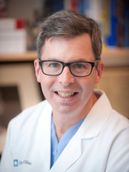Cardiac Depression: What Should Patients Know?
Written By: Adam Pick, Patient Advocate, Author & Website Founder
Page last updated: November 7, 2023
For many patients, cardiac depression can be an unexpected and dislocating reality after heart surgery. Personally, I suffered from an extreme case of cardiac depression. My outlook was dismal. I had no energy. I felt alone and lifeless. Thankfully… That changed when I learned about cardiac rehabilitation classes and when I saw a therapist.
As my mission is to educate and empower you, I recently connected with Dr. Marc Gillinov, the Chair of Cardiac Surgery at the Cleveland Clinic. If you didn’t know, Dr. Gillinov is a heart valve specialist who has successfully treated over 100 patients from our community. Here’s the highlights from my interview with Dr. Gillinov about cardiac depression.
I hope this helped you learn more about cardiac depression. I also hope this might motivate you to ask your surgeon and medical team about cardiac rehabilitation. After talking with thousands of patients, I have yet to speak with one patient who did not have a positive experience with cardiac rehab.
Keep on tickin!
Adam
P.S. For the hearing impaired members of our community, here is a written transcript of my interview with Dr. Marc Gillinov about cardiac rehabilitation.
Adam Pick: Hi, everybody. It’s Adam with HeartValveSurgery.com. Today we are at the Heart Valve Summit in Chicago, Illinois. I’m thrilled to be joined by Dr. Marc Gillinov, who is the Chair of Cardiac Surgery at the Cleveland Clinic. Marc, thanks for being with us today.

Dr. Marc Gillinov: Thank you.
Adam Pick: One of the questions that we have from a lot of our patients is about the mind and how to deal with this experience of heart surgery, both before and after surgery. What we’ve seen is that many patients as they go through this process get depressed. We hear this term cardiac depression after surgery. Can you talk about some of the things that you’re doing there at the Cleveland Clinic to help patients with before and after surgery deal with depression?
Dr. Marc Gillinov: Cardiac depression is a real thing. It’s more than being upset or a little bit dispirited because you had a heart problem. About 20, maybe 25% of people who have a cardiac event – heart surgery, heart attack, angioplasty, stenting, any cardiac event – about a quarter of them are going to get some form of cardiac depression, which is a real entity. The first thing to do is to educate your community and all those who take care of the people in your community about this phenomenon, that cardiac depression is real, that it’s more than just saying, “Don’t worry, you’ll feel better tomorrow.” In terms of preemptive strategies, discussing it and letting the family members and the patient know if you begin to feel like this – down, the symptoms of depression – tell us so we can address it early.
I think that one thing that helps a lot in the post-operative time frame is cardiac rehab. My experience is that people who do cardiac rehab – starting about four weeks after surgery – the people who do the rehab very rarely get depressed. Perhaps as being part of a larger group, people went through the same thing, focusing on yourself, it can be, I think, prevented in many people, but should it occur, it should not be ignored.
Adam Pick: Marc, I can tell you, I love the fact you brought up cardiac rehab because for me, I know in my recovery, cardiac rehab was a turning point for me. It brought me some social benefits, physical benefits, and even just well-being. I’m so happy you brought that up. You’re using it with your patients. I’ve heard, though, it’s under-utilized by patients. Is that true?
Dr. Marc Gillinov: It’s vastly under-utilized. I think that there are two factors that go into that under-utilization. The first is a lot of doctors and hospitals say we fixed your heart; you’re good to go; let us know if you have any problems; bye-bye. It doesn’t end with the operator in the ICU in the hospital. The recovery, as you know – you know better than I do – extends in time, and cardiac rehab is part of that.
The second factor, limiting it’s use, is a lot of patients say I have a treadmill in my basement; I can just do that on my own. You can do the treadmill part on your own, but being part of that group that helps you in a holistic way, you can’t do that on your own. So, if you have a heart issue, do cardiac rehab.
Adam Pick: Last question, wrapping up – this has been great – when does a patient start cardiac rehab?
Marc Gillinov: After heart surgery you start cardiac rehab at about four weeks. Need not be exactly 28 days; it could be five weeks, six weeks, three and a half weeks. Then it continues for actually as long as you’d like. There’s nothing wrong with making cardiac rehab your rest-of-life exercise and holistic wellness program.
Adam Pick: Brilliant points, Marc. As always, thank you for all the care that you and your team are providing to all the patients in our community or coming to see you at the Cleveland Clinic. Thanks for your time, and thanks for being with us.
Marc Gillinov:My pleasure.
|
rubart says on February 12th, 2018 at 2:00 pm |
|
As someone who experienced depression off-and-on long before my heart surgery and know how horrible it can be, my biggest fear going into my surgery wasn’t that I wouldn’t “make it,” but that I’d have a whopping case of depression afterwards. Thank God, that never happened. But I would like to give my own couple of tips to those who do experience it. (1) No matter how awful you feel, remind yourself that you feel that way not because the world is so dark, your life feels meaningless, etc.–but simply because your body has been assaulted and it needs time to recover. Yes, by all means go in for cardiac rehab and all other social connections available. But also know for a fact that you’re going to feel better as your *body* recovers. The world won’t change, but *you* will. Trust me on that. (2) I read someplace where some people get depressed post-op because their need for heart surgery reminded them of their own mortality. To me, this miraculous operation wasn’t a reminder of my eventual death, but of how wonderful life is when operations like this can be performed. I felt more alive than ever because of my surgery, rather than “at death’s door.” I hope some of this helps. In any case, if your depression gets really bad, I urge you to seek help immediately rather than trying to tough it out. Blessings and best of luck to all of you. |
 |
|
Michael Ellwood says on February 13th, 2018 at 2:22 am |
|
Thanks for the article. Your article is really helpful in making me see that I am not mad, since I also suffer from PTSD and now complex PTSD after I was assaulted by an anaesthetist during a different operation on the NHS in England. Of course the hospitals will not admit this happened either. Perhaps you could write an article about patients needing heart surgery with severe psychological trauma caused by doctors and having to also sue due to misdiagnosis of Endocarditis, as I am lead to believe that they cannot be expected to diagnosis this as it is “rare”. |
 |










